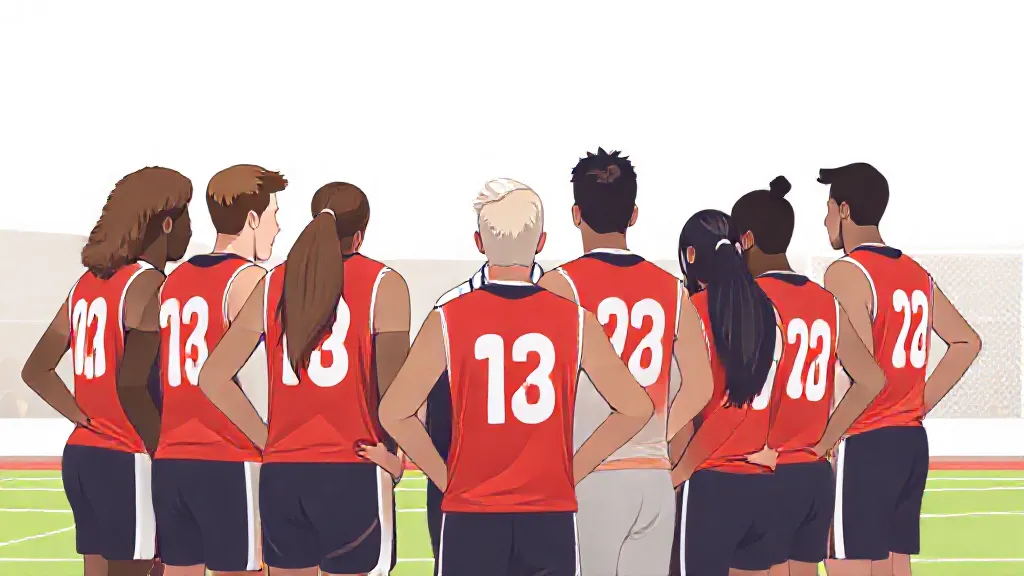Motivation is a crucial element in sports that can significantly influence a team's performance and overall success. Coaches play a pivotal role in fostering an environment where athletes feel inspired and driven to perform at their best. Understanding how to motivate a team effectively involves a blend of psychological insights, practical strategies, and a deep understanding of individual player dynamics.
This article delves into various methods that coaches can employ to enhance motivation within their teams, ensuring that each athlete is engaged and striving for excellence.
Understanding the Psychology of Motivation
At the core of effective team motivation lies an understanding of the psychological factors that influence athletes. Motivation can be intrinsic, stemming from personal satisfaction and passion for the sport, or extrinsic, driven by external rewards such as trophies, recognition, or financial incentives.
Coaches must recognize these different motivational drivers and tailor their approaches accordingly. For example, a coach might encourage intrinsic motivation by emphasizing personal growth and the joy of competition, while also incorporating external rewards for team achievements to keep the competitive spirit alive.
Setting Clear Goals and Expectations
One of the most effective ways to motivate a team is by setting clear, achievable goals.
When athletes understand what is expected of them and have specific targets to aim for, they are more likely to stay focused and committed. Coaches should involve players in the goal-setting process to ensure buy-in and personal investment. For instance, setting both short-term goals, such as improving specific skills during practice, and long-term goals, like winning a championship, can create a roadmap for success that keeps athletes motivated throughout the season.
Fostering a Positive Team Culture
Creating a positive team culture is essential for motivation. Coaches should strive to build an environment where athletes feel valued, respected, and connected to one another. This can be achieved through team-building activities, open communication, and fostering a sense of belonging.
When athletes feel part of a supportive community, they are more likely to push themselves and each other to excel. Celebrating individual and team successes, no matter how small, can also reinforce this positive culture and keep morale high.
Utilizing Effective Communication Techniques
Effective communication is a cornerstone of motivation.
Coaches should practice active listening, offering feedback that is constructive and encouraging. It is vital to communicate not only what needs to be improved but also to recognize and praise what athletes are doing well. This balanced approach helps build confidence and motivates players to strive for improvement without feeling discouraged.
Regular one-on-one meetings can also provide athletes with a platform to express their thoughts and feelings, further enhancing their commitment to the team.
Incorporating Variety in Training
Monotony can lead to disengagement, so incorporating variety in training sessions is crucial for maintaining motivation. Coaches should strive to design practices that are dynamic and challenging, integrating different drills, games, and competitive scenarios.
This not only keeps athletes engaged but also helps develop a broader range of skills. For example, mixing traditional drills with fun, competitive games can create an enjoyable atmosphere that encourages athletes to work hard while having fun.
Building Trust and Relationships
Trust between a coach and their athletes is fundamental for motivation.
Coaches should invest time in getting to know their players, understanding their individual motivations, strengths, and areas for improvement. Building strong relationships fosters an environment where athletes feel comfortable taking risks and pushing their limits. When athletes trust their coach, they are more likely to be receptive to feedback and motivated to meet the expectations set for them.
Emphasizing the Importance of Resilience
Teaching athletes the value of resilience is another effective motivational strategy. Coaches can instill a growth mindset by encouraging players to view challenges and setbacks as opportunities for growth rather than failures. Sharing stories of famous athletes who have overcome adversity can inspire players to adopt a similar mindset.
By promoting resilience, coaches help athletes develop the mental toughness necessary to persevere through difficult times, which can enhance overall team motivation and performance.
Regularly Evaluating and Adapting Strategies
Finally, coaches should regularly evaluate the effectiveness of their motivational strategies. What works for one team or individual may not work for another, so it is essential to be flexible and willing to adapt.
Gathering feedback from athletes about their experiences and feelings can provide valuable insights into what motivates them. By staying attuned to the needs and dynamics of the team, coaches can continuously refine their approaches to ensure that motivation remains high throughout the season.
In conclusion, effective motivation in sports is a multifaceted process that requires coaches to understand their athletes, set clear goals, foster a positive environment, and continually adapt their strategies.
By employing these techniques, coaches can inspire their teams to reach their full potential and achieve success on and off the field.
